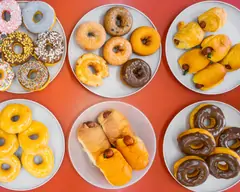
William & Sons Coffee Co. (814 Elm St)
• Breakfast and Brunch • Coffee and Tea • Pastry • Info
x Available Friday 7:15 AM
814 Elm St, Manchester, NH 03101-2109
x $0 delivery fee
Other fees x
Enter address
to see delivery time
Sunday
Monday - Thursday
7:00 AM - 2:00 PM
Friday
7:15 AM - 2:00 PM
Saturday
7:00 AM - 2:00 PM
Featured items
Coffee
Tea & Chocolate
Food